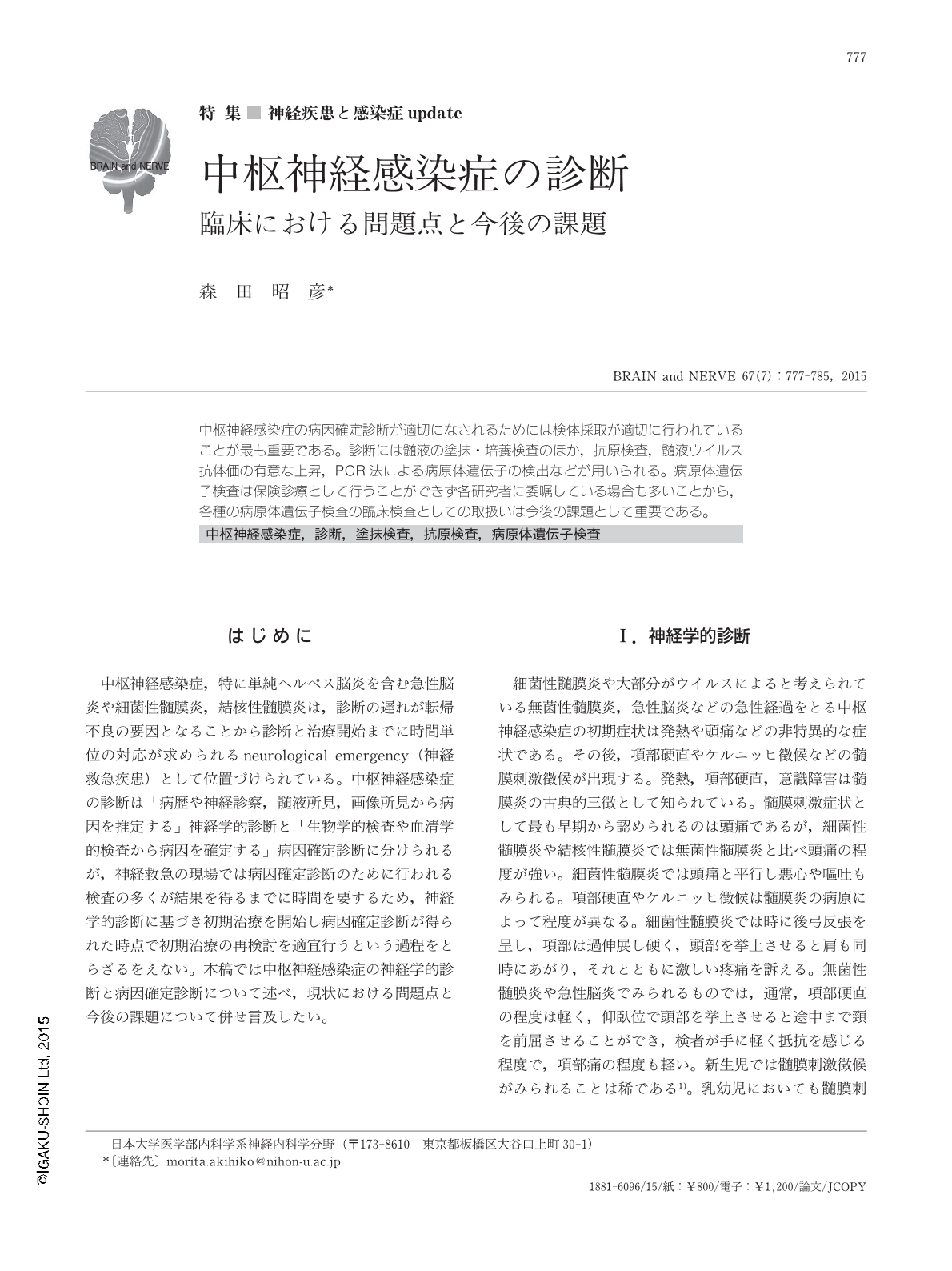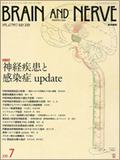Japanese
English
- 有料閲覧
- Abstract 文献概要
- 1ページ目 Look Inside
- 参考文献 Reference
中枢神経感染症の病因確定診断が適切になされるためには検体採取が適切に行われていることが最も重要である。診断には髄液の塗抹・培養検査のほか,抗原検査,髄液ウイルス抗体価の有意な上昇,PCR法による病原体遺伝子の検出などが用いられる。病原体遺伝子検査は保険診療として行うことができず各研究者に委嘱している場合も多いことから,各種の病原体遺伝子検査の臨床検査としての取扱いは今後の課題として重要である。
Abstract
Central nervous system (CNS) infections, including acute encephalitis, bacterial meningitis, tuberculous meningitis, and fungal meningitis, represent a potentially life-threatening neurological emergency. An etiological diagnosis of CNS infection is made a definite diagnosis based on the identification of pathogenic agents in the CNS using cerebrospinal fluid (CSF) smears or cultures, the identification of pathogenic antigens in CSF, the identification of pathogenic products in brain tissues or CSF with polymerase chain reaction (PCR), or the identification of specific antibody responses in CSF. Since time is required to obtain results from these laboratory tests, initial empirical treatments for the suspected CNS infection are required. The optimal specimen sampling and delivery is an essential requirement to reach the definite diagnosis. Nucleic acid amplification tests, such as PCR assays, show high sensitivity and specificity in detecting pathogens from CSF. In Japan, most genetic tests for pathogenic agents are performed as part of academic research. The number of commercially available genetic tests is limited. Moreover, no genetic tests for pathogenic agents in the CSF are covered by the national health insurance system in Japan. To manage the continuity of genetic tests, this inefficient system should be improved.

Copyright © 2015, Igaku-Shoin Ltd. All rights reserved.


